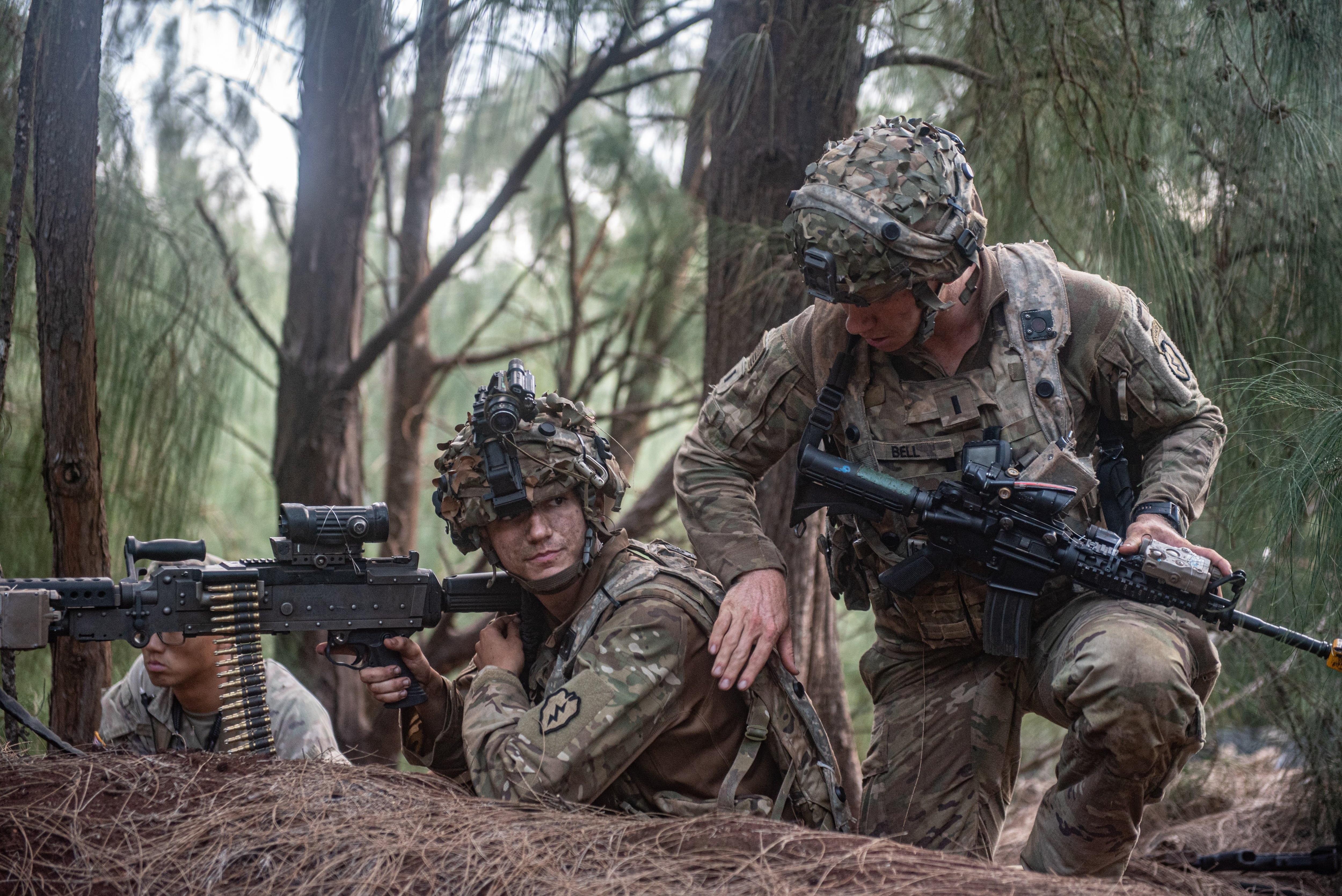The Army in 2021 will select from among the three companies vying to build the Army’s replacement for both the M4 carbine and Squad Automatic Weapon.
The Next Generation Squad Automatic Weapon project has been in the works for the past three years and, if completed and implemented, would mark the first substantial change in conventional small arms that the U.S. military has seen since the mid-20th century when it adopted the M16 service rifle in 5.56mm.
Long the source of debate within the small arms community, the Army and its fellow services embarked upon the most recent attempt to shift away from the small caliber round following battlefield reports from recent wars and an in-depth study of adversary arsenals in recent years.
RELATED

That led to the evaluation of an “intermediate caliber” round for the next step in squad-level small arms. The goal was a round that could achieve distances beyond the reach of 5.56 mm and remain lethal while maintaining manageable recoil and ammunition weight concerns that machine gun carriers of the 7.62mm face.
Ultimately, the project decided on 6.8 mm, similar in size to the classic .270 caliber used by deer hunters and not far off from a popular intermediate caliber favored by the early 20th century Japanese military and nearly adopted by the British between World War I and World War II.
But the military-designed 6.8 mm has other characteristics and ballistics bona fides not found at the local Walmart ammunition shelves.
And the companies competing for this history-making contract were told to build their rifles around the new round.
Three companies were chosen to advance in the competition nearly two years ago — Sig Sauer, which won over evaluators to replace the 1980s-era Beretta M9 sidearm with the M17 and M18 9 mm pistol variants; General Dynamics and Textron Systems.
Each brings a different take on the new weapon. Sig Sauer has a very familiar AR feel that would retain much of the control, balance and operations that are familiar to shooters who have spent a career carrying the M4 or its older brother, the M16, around dusty battlefields.
The GD variant has looked to the bullpup design to maintain a solid barrel length that’s suppressor capable, another requirement of the weapon beyond its caliber.
And Textron has reinvented the cartridge itself, using its ongoing “cased telescoped” ammunition that tucks the bullet inside the case and uses a novel feed approach to firing the projectile.
Alongside weapons development, two companies have won the right to compete for the fire control, or optics, to mount on this new rifle ― L3 Technologies and Vortex Optics.
The first weapons prototype test wrapped up in September. The next is scheduled for February. By or before October, officials expect to select one of the three companies to build their version of the NGSW. They’ll have about a year to start pumping out up to snuff rifles, because the Army wants to begin fielding before October 2022 to Infantry, Stryker and Armor Brigade Combat Teams.
Todd South has written about crime, courts, government and the military for multiple publications since 2004 and was named a 2014 Pulitzer finalist for a co-written project on witness intimidation. Todd is a Marine veteran of the Iraq War.





